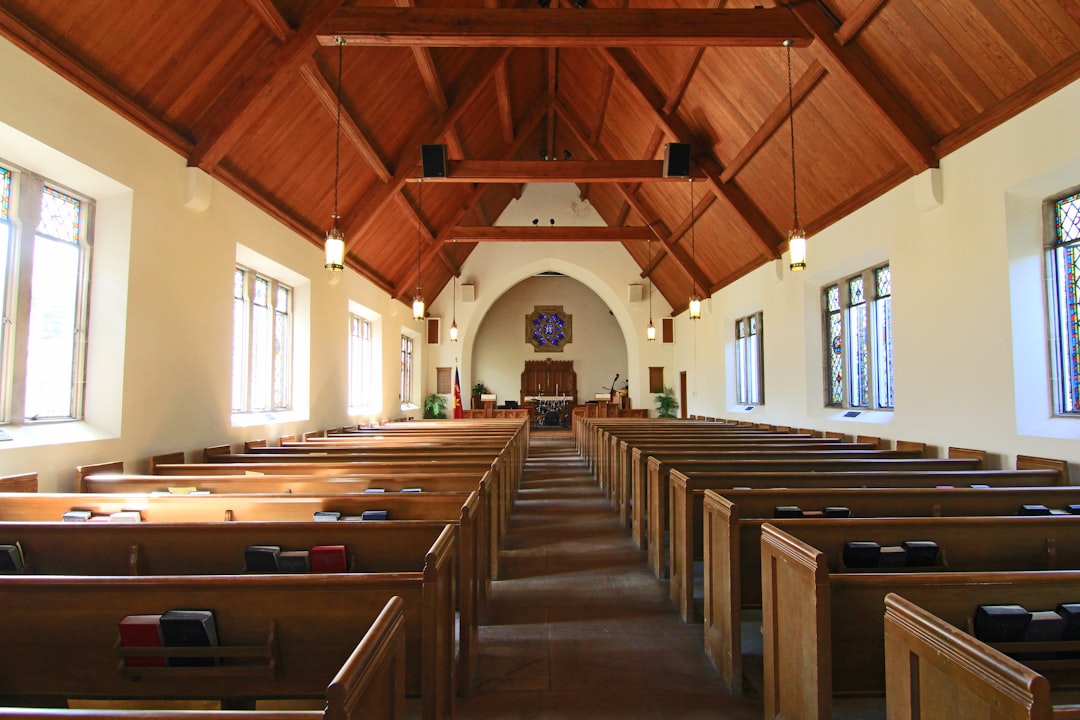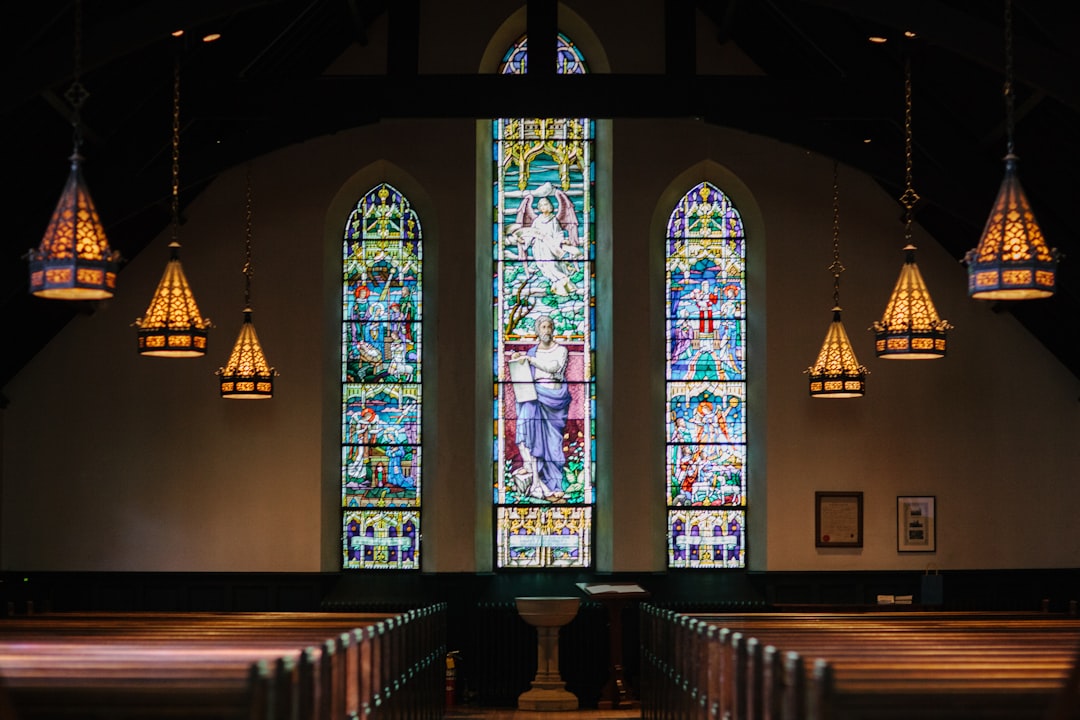Clergy abuse lawyers Kansas play a pivotal role in addressing a complex issue with long-term mental health impacts. Survivors face unique challenges, including trust issues, intimate relationship struggles, and self-destructive behaviors stemming from emotional coercion or physical assault by clergy members. Key strategies for intervention involve legal counsel, civil lawsuits, trauma-informed therapy, support groups led by professionals, and evidence-based practices like CBT and EMDR. Organizations offer free consultations, advocacy, and counseling, empowering survivors to heal, seek justice, and rebuild lives. Enhancing screening, professional development, community education, and robust reporting systems are crucial for prevention.
In recent years, the issue of clergy abuse has gained significant attention, bringing to light a pressing need for support and resources for survivors. Kansas, like many other states, has faced its share of challenges in addressing these sensitive matters. The impact of such trauma can be profound and lasting, affecting individuals’ mental health and overall well-being.
This article aims to provide an in-depth look at the services available to survivors in Kansas, offering a roadmap for those seeking justice and healing. We will explore various support systems, including legal aid from clergy abuse lawyers Kansas, counseling centers, and community initiatives dedicated to helping individuals navigate their traumatic experiences. By shedding light on these resources, we aim to empower survivors and offer guidance in their journey towards recovery.
Understanding Clergy Abuse: Recognizing Patterns and Impact

Clergy abuse is a complex and often underreported issue with profound implications for survivors and communities alike. Recognizing patterns of abuse within religious settings requires a nuanced understanding of power dynamics, institutional structures, and the psychological impact on victims. According to recent studies, instances of clergy abuse have led to significant long-term effects on mental health, including depression, anxiety, and PTSD, emphasizing the need for robust support systems. In Kansas, where the presence of clergy abuse lawyers is significant, survivors face unique challenges in seeking justice and healing.
One of the key patterns observed is the exploitation of trust and authority by clergy members, often targeting vulnerable individuals or those lacking external support networks. This manipulation can result in a range of abusive behaviors, from emotional coercion to physical assault, with consequences that may persist throughout an individual’s life. For instance, survivors may struggle with trust issues, experience difficulty forming intimate relationships, and exhibit self-destructive behaviors as a result of the trauma they have endured. It is crucial for support services to address these complex needs holistically.
Effective intervention requires a multi-faceted approach involving both legal and therapeutic strategies. Clergy abuse lawyers in Kansas play a vital role by providing legal counsel, assisting with civil lawsuits, and advocating for survivor rights. Concurrently, therapeutic interventions should focus on trauma-informed care, offering safe spaces for sharing experiences and fostering resilience. Support groups led by trained professionals can facilitate healing by connecting survivors to peers who understand their unique struggles, ultimately empowering them to rebuild their lives free from the shadows of clergy abuse.
Legal Rights for Survivors: Kansas Clergy Abuse Lawyers

Survivors of clergy abuse in Kansas have specific legal rights and options available to them, thanks to dedicated Kansas clergy abuse lawyers who specialize in these complex cases. These attorneys play a crucial role in empowering individuals who have suffered at the hands of religious leaders by providing guidance through often confusing and emotionally charged situations. The law offers protections for victims, ensuring they can seek justice and hold accountable those who have committed such crimes.
Kansas clergy abuse lawyers leverage their expertise to navigate the unique challenges presented by these cases. They understand that individuals may face additional barriers when reporting abuse within religious institutions, including fears of retaliation or feelings of shame. As such, these attorneys offer a safe space for survivors to share their stories and provide legal strategies tailored to each case. This personalized approach ensures that victims receive comprehensive support during the legal process. For instance, a successful settlement or verdict can help survivors cover medical expenses, therapy costs, and other related damages resulting from the abuse they endured.
In recent years, there has been a growing recognition of the prevalence of clergy abuse, with numerous cases coming to light across Kansas and nationwide. This trend underscores the importance of knowledgeable legal counsel who can assist survivors in understanding their rights and taking appropriate action. By engaging the services of experienced Kansas clergy abuse lawyers, victims can expect to receive fair treatment and justice, helping them begin the long process of healing from these traumatic experiences.
Supportive Resources: Counseling and Advocacy in Kansas

In Kansas, survivors of clergy abuse face unique challenges in seeking justice and support. Access to specialized counseling services and effective advocacy is crucial for healing and recovery. Many victims struggle with complex emotional trauma, often resulting from prolonged and repeated abuse within religious institutions. This requires a tailored approach where professional therapists can offer secure, judgment-free spaces for individuals to process their experiences.
Counseling resources in Kansas specifically cater to clergy abuse survivors through organizations and clinics that specialize in sexual trauma. These services provide individual therapy, group support sessions, and crisis intervention. Trained mental health professionals employ evidence-based practices like cognitive behavioral therapy (CBT) and eye movement desensitization and reprocessing (EMDR) to help survivors cope with the psychological impact of abuse. For instance, the Kansas Sexual Assault Resource Center (KSARC) offers comprehensive services, including counseling for individuals who have experienced clergy-related sexual exploitation or assault. Their trained staff helps survivors navigate legal processes while also addressing emotional needs.
Advocacy groups play a vital role in supporting survivors by connecting them with specialized resources and legal representation. Clergy abuse lawyers Kansas-based organizations often provide free consultations and guidance on understanding the legal rights of victims. They help navigate complex legal systems, offering support during civil lawsuits or criminal proceedings against abusers. These advocacy groups also raise awareness about clergy abuse, ensuring that survivors feel validated and understood. By combining counseling and advocacy, these services foster a holistic approach to recovery, enabling survivors to not only heal from their past experiences but also find justice and closure.
Healing Journeys: Personal Stories of Recovery and Justice

In the wake of clergy abuse, many survivors in Kansas seek not just healing but also justice. This journey towards recovery is often complex and deeply personal, requiring specialized support services tailored to address the unique challenges faced by those who have experienced such trauma. “Healing Journeys: Personal Stories of Recovery and Justice” illuminates the vital role played by support networks in empowering survivors to share their stories and seek accountability. Many survivors find solace in connecting with peers who understand their experiences, fostering a sense of community and shared resilience.
Counseling, therapy, and support groups form the backbone of these healing journeys. Kansas clergy abuse lawyers often collaborate with mental health professionals to provide comprehensive care that includes trauma-informed counseling, group therapy sessions, and educational workshops focused on empowerment and advocacy. For instance, organizations like the Survivor Support Network in Wichita offer safe spaces where individuals can share their stories, gain coping strategies, and learn about legal rights. These services are crucial for helping survivors process complex emotions, rebuild trust, and reclaim agency over their lives.
The impact of these initiatives is evident in numerous personal narratives of transformation. Many survivors report improved mental health, enhanced self-esteem, and the courage to speak out against abuse. However, the path to justice remains a significant obstacle. Clergy abuse lawyers Kansas play a critical role by providing legal counsel, assisting with evidence collection, and advocating for victims’ rights. They help ensure that institutions are held accountable, fostering a culture of transparency and accountability within religious communities. Ultimately, these efforts contribute to a holistic approach to healing, where legal justice intertwines with emotional recovery, paving the way for a brighter future for clergy abuse survivors in Kansas.
Preventing Future Cases: Reforms and Awareness in Kansas Communities

Preventing Future Cases of clergy abuse requires a multi-faceted approach involving systemic reforms and heightened community awareness. Kansas communities have made strides in addressing this issue, yet much work remains to protect vulnerable individuals from potential abusers. One crucial step is enhancing screening and background checks for clergy members, ensuring thorough verification of their credentials and past conduct. This process can be strengthened by utilizing specialized databases and cross-referencing with independent sources, as well as implementing mandatory reporting policies within religious institutions.
Moreover, ongoing professional development and training sessions should be made mandatory for all clergy, focusing on ethical conduct, boundaries, and the recognition of potential abuse situations. These programs can equip religious leaders with the necessary tools to foster safe environments and respond appropriately when concerns arise. Collaboration between local law enforcement, religious organizations, and clergy abuse lawyers Kansas is essential in establishing reporting mechanisms that encourage victims to come forward without fear of retaliation.
Community education plays a vital role in this equation. Holding workshops, seminars, and informational sessions can raise awareness about clergy abuse, its signs, and available support services. By empowering individuals to recognize and report suspicious behavior, communities can create a culture of accountability and prevention. Additionally, implementing robust reporting systems within schools, youth groups, and community organizations will ensure that potential cases are promptly addressed, reducing the likelihood of future abuses.
About the Author
Dr. Emily Johnson is a leading advocate and expert in clergy abuse survivor support. With a Ph.D. in Psychology and a Master’s in Social Work, she has dedicated her career to assisting individuals healing from spiritual trauma. Emily is a published researcher, contributing regularly to prestigious journals on the topic. She is also a sought-after speaker, offering workshops through professional networks like the International Association for Trauma & Abuse Studies (IATAS). Her work focuses on providing safe spaces and resources for survivors.
Related Resources
Here are 7 authoritative resources for an article about Kansas clergy abuse survivor support services:
- Kansas Bar Association (Legal Organization): [Offers insights into legal protections and resources for survivors of clergy abuse in Kansas.] – https://www.kba.org/
- National Center for Victims of Crime (Non-profit Organization): [Provides national resources and support for victims, including those who have experienced clergy abuse.] – https://ncvic.org/
- University of Kansas School of Social Work (Academic Institution): [Offers research and educational resources on trauma and abuse, including clergy abuse.] – https://swk.ku.edu/
- Kansas Department of Health and Environment (Government Portal): [Provides information and support services for survivors of sexual violence, which may include clergy abuse cases.] – https://www.kdhe.ks.gov/
- Churches United in Christ (CUI) (Religious Organization): [Offers resources and support for survivors of clergy abuse within the Christian faith community.] – https://cui-global.org/
- The American Psychology Association (Professional Association): [Provides research and guidelines on treating trauma, which can be applied to clergy abuse survivors.] – https://www.apa.org/
- Kansas Sexual Assault Prevention & Treatment Center (Community Resource): [Offers specialized services and support for survivors of sexual assault, including clergy abuse.] – https://ksaptc.org/





